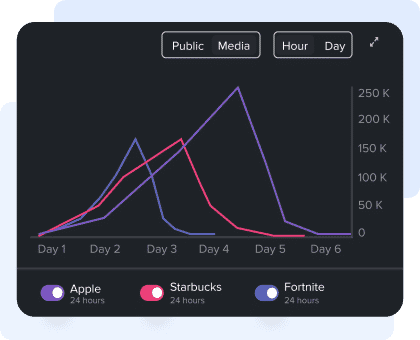Misinformation and disinformation are among the biggest challenges facing humanity. The proliferation of “alternative facts” and downright lies is dramatically affecting the public’s understanding of major conflicts, climate change, disease and transitions of power.
One study in Singapore, for instance, found that COVID-19–related misinformation caused people to eat garlic and rinse their nose with saline as a way to avoid the disease at the expense of proven scientific prevention methods, such as social distancing.
Keeping misinformation at bay is an enormous job, but NewsGuard, a New York-based company, is up for the task. The business, which was started by Steven Brill and Gordon Crovitz, two veteran journalists, systematically analyzes digital information sources to determine their reliability and objectivity. It shares its discoveries directly with consumers and works with organizations too, so they can protect their image and clients.
“I’ve never been in a place where the work we do feels so needed,” says Eric Effron, Editorial Director of NewsGuard, in an interview with NewsWhip.
Today, misinformation impacts everyone from brands to governments to health-care organizations, among many others. Companies are increasingly concerned about their products, ideas or advertisements showing up on scurrilous websites, which could result in a public relations disaster, while health-care organizations need to ensure the public isn’t consuming inaccurate medical information. Misleading media reports can also lead to a host of issues including people making poor lifestyle choices to growing their mistrust in governments and institutions.
“The lack of trust in the press and the fact that we’re so polarized mean that people don’t even have agreed-upon facts to feed dialogue,” says Effron. “The kind of disparaging of the press and of truth and science is integrated into the movement against democracies.”
NewsGuard, which works with companies like Publicis Group and Microsoft, doesn’t just study individual stories after they’re published – it also audits various websites and their content over time. “We look at the domain level,” says Effron, who calls this approach pre-bunking as opposed to debunking. “We signal to readers that this website has bad practices. We’re telling you that you should look at what they’re saying with a grain of salt.”
Holding websites accountable
With no shortage of sites or topics to analyze and assess, NewsGuard uses NewsWhip to help it determine which sites and issues are most read and shared. It also relies on its own analysts, mostly trained journalists, to use their news instincts to identify worrying trends.
For instance, one of its analysts noticed recently that after the Roe v. Wade decision that gave states the right to make their own abortion laws, numerous videos promoting do-it-yourself herbal abortion products started popping up on TikTok. “My reaction was, what?” recalls Effron, who immediately told the analyst to continue digging. In July, NewsGuard published a report on the proliferation of these videos and how users were bypassing TikTok’s moderation system.
Since its launch in 2018, NewsGuard has rated and reviewed more than 8,000 websites, assessing each one using points under nine criteria, which include:
- Not repeatedly publishing false content
- Gathering and presenting information responsibly
- Regularly correcting or clarifying errors
- Responsibly handling the difference between news and opinion
- Avoiding deceptive headlines
- Disclosing website ownership and financing
- Labeling advertising clearly
- Revealing who’s in charge, including possible conflicts of interest
- Naming the site’s content creators, along with contact or biographical information
“These are very basic journalism criteria that are apolitical,” says Effron, adding that NewsGuard’s analysts tread gently as they follow these criteria. “It’s important we get it right, so we’re really careful.”
While NewsGuard’s work is often picked up by mainstream media, such as the New York Times and Washington Post, which then helps the broader public better understand what’s real and what’s not, their work is also helping the sites they audit improve the way they present information. For example, if NewsGuard can’t find a spot on a site for corrections, they’ll contact the owners to see where those updates may be. Often, it’s just a website navigation issue preventing organizations from following journalistic best practices. Effron says 1,800 sites have improved their approaches after being assessed by NewsGuard.
NewsGuard also continually reassesses site scores. “We are constantly reviewing and updating our write-ups,” says Effron. “We try to update every one at least once a year, and as soon as we become aware of a change, we update.”
Diving deep into key topics
As for what NewsGuard is tracking today, the war in Ukraine is a major topic for its team. It launched the Russia-Ukraine Disinformation Tracking Center, which has identified 250 sites publishing war myths. The Center includes a long list of myths it’s dispelled, detailed reports tracking misinformation from Russian news sites, such as RT and Sputnik, and a place for people to sign up for weekly Russian disinformation alerts.
To run the Center, it employs a Russian-speaking analyst based in the U.K., uses on-the-ground reports and images to identify what’s really going on and examines reliable research about disinformation in the region. In many cases the same lies come up repeatedly, says Effron.
Monkeypox is also on its radar, with Effron finding that many of the same misleading statements that influenced the way people think about COVID-19 are popping up again. “Some of the false claims about COVID-19 are being made about monkeypox, like it was created in a lab, and misleading information about vaccines,” he says. “And a lot of the false claims about COVID-19 vaccines were just recycled claims from earlier vaccines.”
Tracking misinformation and disinformation is tough work for the NewsGuard team, Effron admits. Many regular readers of iffy websites have zero interest in real facts, transparency or reliability. “Our job is to try to get the best information out there,” he says. “We hope that, in a functioning democracy, we can get this information to the public and have an impact.”











